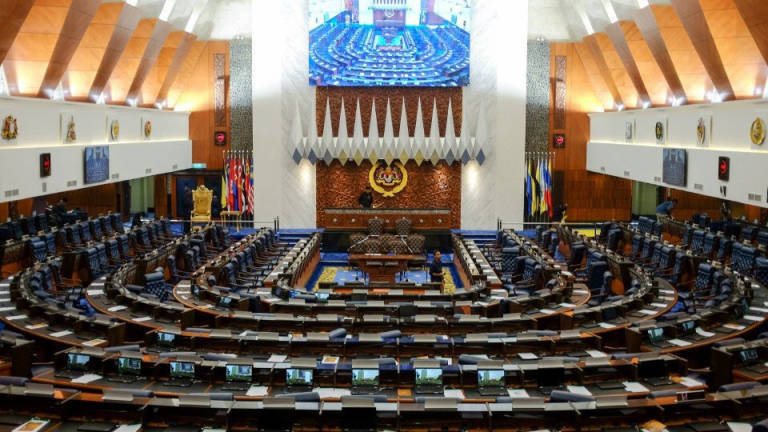PETALING JAYA: Today’s parliamentary session, which only has the Royal Address, serves to meet constitutional requirements and avoids undermining the government, political analysts said.
They see it as a time-buying strategy by Prime Minister Tan Sri Muhyiddin Yassin to consolidate his position. Apart from former prime minister Tun Dr Mahathir Mohamad calling for a vote of no-confidence, Muhyiddin also faces challenges within Perikatan Nasional (PN).
“Article 55 of the Federal Constitution states that Parliament must meet within six months from the end of the last session,” Singapore Institute of International Affairs senior fellow Dr Oh Ei Sun said yesterday.
It would appear that there is a constitutional crisis if Parliament does not meet by early June, he said.
“I would imagine that MPs may seek an emergency judicial review of such non-sitting,” he added.
Oh said Muhyiddin could not even risk the debate on the motion of thanks on the Royal Address, as it constructively indicates a motion of confidence on his administration.
“Muhyiddin could not risk that, not so much because he fears Mahathir’s antics, but mainly because of his own allied parties, especially Umno.
“They could withdraw their support unexpectedly if some of their demands were not met.”
University of Malaya socio-political analyst Assoc Prof Dr Awang Azman Awang Pawi agreed that it (Royal Address only sitting) is to avoid undermining the government.
“The session is just to meet constitutional requirements or else, the government will become invalidated,” he said.
“Furthermore, there is the issue of the fallout within PN which requires Muhyiddin to buy time.”
On the matter of Covid-19 infection fears being cited as a reason not to hold debates, Awang said online sessions were possible.
“It is a matter of political will. Online parliamentary sittings have been scheduled overseas in the United Kingdom, Canada, Brazil and even the Maldives.
“We can do the same,” he said.
Meanwhile, Assoc Prof Dr Shamrahayu Abdul Aziz said laws are insufficiently clear on the consequences should Parliament not convene every six months.
“While many would assume it would lead to the government being dissolved, this is not the case,” she said.
“The Constitution is silent on what would happen, but there is an understanding that since the Constitution calls for Parliament to convene, it must.”














